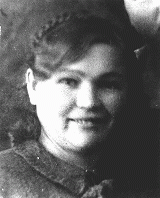You searched for: 澳门威尼斯人网址【手动输入∶___bet126.net___】最新地址请收藏,澳门威尼斯人网址是多少,澳门威尼斯人全部网址,澳门新威尼斯人的网址,澳门威尼斯人网址玩法,澳门威尼斯人网址44,澳门威尼斯人开户网址。
<< Previous | Displaying results 311-320 of 430 for "澳门威尼斯人网址【手动输入∶___bet126.net___】最新地址请收藏,澳门威尼斯人网址是多少,澳门威尼斯人全部网址,澳门新威尼斯人的网址,澳门威尼斯人网址玩法,澳门威尼斯人网址44,澳门威尼斯人开户网址。" | Next >>
-
Margit Nemeth Fekete
ID CardMargit was born to a Jewish family in the city of Szentes. In 1919 she married and had a son, Gyorgy. When Gyorgy was still a baby, Margit divorced, but she remarried several years later. Her new husband, Vilmos Fekete, worked as a manager in a large electric company in Ujpest, a suburb of Budapest. Margit settled there and her son stayed in Szentes with his grandparents. 1933-39: Margit and her son saw each other as often as possible. Margit would travel by bus to Szentes to spend the Jewish holidays…
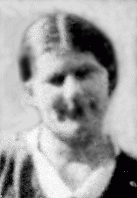
-
Mosze Fuks
ID CardWhen Mosze was a baby his family moved from the small town of Klimontov to the industrial city of Lodz. The Fuks family owned a grocery store and in the early 30s they started manufacturing silk thread. 1933-39: In September 1939 Germany attacked Poland. Over the radio, appeals were broadcast calling Jewish youths to Warsaw to help defend the city. Mosze and his brother, along with hundreds of others, set out for Warsaw. They walked for three days, but when they got to Warsaw, it was too late--the city…
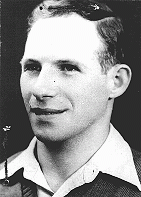
-
Mendel Felman
ID CardOne of seven children, Mendel was raised in a Yiddish-speaking, religious Jewish home in Sokolow Podlaski, a manufacturing town in central Poland with a large Jewish population of about 5,000. Mendel's parents ran a grain business. As a teenager, Mendel liked to play chess, and he completed his public schooling in Sokolow Podlaski in 1931. 1933-39: After finishing middle school, Mendel went to work in his parents' business. When he was 18, he fell in love with Frieda Altman who was in the same Zionist…
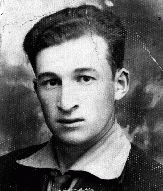
-
Jakab Katz
ID CardJakab, a religious Jew, was the father of eight children. In the early 1900s he sailed to America, paying his way by shoveling coal on the ship. In New York he earned enough money to help two of his daughters immigrate. Returning to Buj, he eventually moved his family to Zalkod, a small town in northeastern Hungary. There, helped by his wife, Terez, and his son, Miklos, he ran a store and a farm. 1933-39: Jakab's daughter, Sadie, and her two children, Lillian and Arthur, are visiting from America. The…
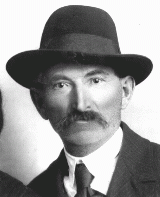
-
Terez Spitz Katz
ID CardA religious Jewish mother of nine, Terez settled with her husband, Jakab, and children in Zalkod, a small town in northeastern Hungary. Jakab ran a general store. Terez tended their sprawling farmhouse. She baked black bread in their wood-burning stove and canned the peaches and plums she gathered with her children and grandchildren from the family orchards. 1933-39: Terez's oldest daughter, Sadie, is visiting from America. Sadie comes with her parents every Friday when they take the horse-drawn wagon to…
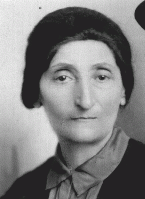
-
Olga Gelb
ID CardOlga was born to religious Jewish parents in a small city in Ruthenia. The country's easternmost province, Ruthenia had been ruled by Hungary until 1918. One of eight children, Olga grew up in a prosperous home in which both Yiddish and Hungarian were spoken. Her father worked as a wholesale leather merchant. Olga attended both public school and a Hebrew girls' school. 1933-39: Under Czech rule Olga could be religious and not face discrimination at school. Her parents were pleased when Ruthenia became a…
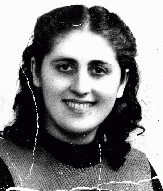
-
Jermie Adler
ID CardThe second of seven children, Jermie was born to poor, religious Jewish parents at a time when Selo-Solotvina was part of Hungary. Orphaned as a young boy, he earned a living by working at odd jobs. In the 1920s he married a woman from his village. Together, they moved to Liege, Belgium, in search of better economic opportunities. There, they raised three daughters. 1933-39: In Liege the Adlers lived in an apartment above a cafe, and Jermie and his wife ran a successful tailoring business. Their children…
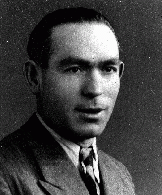
-
Zelda Piekarska
ID CardZelda was born to a close-knit Jewish family in Sosnowiec, a city in the coal-mining region of Poland. Her father owned a restaurant and also co-owned a chocolate and candy factory. Zelda loved to dance; she was an excellent tap dancer. 1933-39: On September 4, 1939, the Germans entered Sosnowiec. Zelda's family was at her father's store when the German tanks rolled down the street. She saw people lying on the ground but didn't understand why. Her mother told her they were dead. Later, the Germans forced…
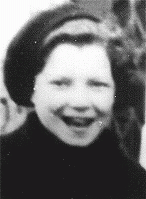
-
Sophie Weisz
ID CardSophie was born to a prosperous Jewish family in a village near the Hungarian border known for its winemaking and carriage wheel industries. The village had many Jewish merchants. Her father owned a lumber yard. Sophie loved to dance in the large living room of their home as her older sister, Agnes, played the piano. 1933-39: Sophie's father believed in a Jewish homeland and sent money to Palestine to plant trees and establish settlements there. When she was 10, she was sent to a school in nearby Oradea…
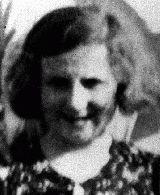
-
Alexandra Schicharva
ID CardAlexandra was the second-youngest of six children born to Russian Orthodox parents. Her family lived in a small village in the Orlovskaya region, some 250 miles south of Moscow [in the Soviet Union]. She attended public school, where she learned German. Alexandra's father was a plasterer and painter, and often worked away from home for months. Her mother worked at a collective farm in the village. 1933-39: In 1933 food was scarce. The government seized grain harvests for export; other crops were taken to…
